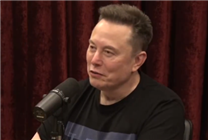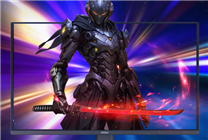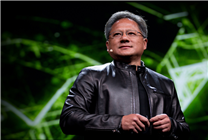Elon Musk’s Vision for the Future of Smartphones: AI Takes Center Stage
Summary:
- Elon Musk predicts that in the next five to six years, AI will dominate content generation.
- Traditional mobile phones will evolve into "edge nodes" facilitating AI interactions.
- The concept of operating systems and apps will become obsolete, simplifying user experience.
In a recent episode of Joe Rogan’s popular podcast, the Tesla CEO Elon Musk shared his insights on the future of technology, specifically predicting a significant transformation in the smartphone landscape over the next few years. This discussion touched on various topics, but Musk made headlines with his thought-provoking views on AI and its burgeoning role in everyday life.
Musk envisions a future where human engagement with technology is redefined. He asserts that in a span of five to six years, the majority of content consumed by individuals will be generated by artificial intelligence. This prediction signals an exciting yet disruptive shift in how we perceive technology and interaction.
The Evolution of Mobile Devices
According to Musk, traditional mobile phones as we know them are on the verge of becoming obsolete. Instead, he suggests that these devices will evolve into what he calls "edge nodes" for AI processing. While these edge nodes will maintain some fundamental capacities—like communication through radio modules—their primary function will transform dramatically.
In this future vision, the smartphone will serve as a conduit for real-time interaction between server-side AI and device-side AI. This evolution is not merely about enhancing existing capabilities; it’s about fundamentally reimagining the way users engage with content. Instead of manually searching for information or media, individuals will request and receive personalized, AI-generated video content tailored to their preferences in real time.
Disruption of Operating Systems and Apps
Musk further elaborates that the traditional concepts of operating systems and applications will fade into obscurity. In this future landscape, devices will prioritize simplicity, focusing on essential functions such as displaying images and playing audio. Instead of complex operating systems, these smartphones will integrate advanced AI capabilities to handle tasks that currently rely on apps, thereby streamlining user experiences.
Such a shift could significantly impact app developers, software companies, and consumers alike, as the demand for conventional applications diminishes. The implications extend far beyond mere convenience; they raise questions about privacy, control, and the role of human creativity in producing content. Will users become passive consumers of AI-generated materials, or will new creative avenues emerge where humans collaborate with AI?
The Implications for Users and Developers
Musk’s insights compel us to consider the societal implications of an AI-driven ecosystem. If AI starts to dictate the majority of the content we interact with, how will this impact creativity and autonomy? The debate around AI’s role in our lives has been ongoing, but the acceptance of AI as a content creator marks a new chapter in this dialogue.
For developers, this shift could necessitate a radical rethinking of strategies. The future may favor developers who can innovate in a landscape dominated by AI, perhaps creating tools that facilitate efficient interaction between users and intelligent systems rather than standalone apps.
Conclusion
Elon Musk’s vision of smartphones evolving into AI-driven edge nodes highlights a transformative shift in technology that could redefine human interaction with devices. As we look ahead to the next five to six years, the potential for AI to reshape our content consumption is both exciting and challenging. Understanding these changes will be critical for both users and developers as they navigate this brave new world, where the intersection of human creativity and artificial intelligence takes prominence.
As we continue to examine the implications of Musk’s predictions, one thing remains clear: the future of technology is not just about advancements in hardware or software, but about rethinking the entire framework of how we consume and interact with information in an increasingly AI-centric world.





